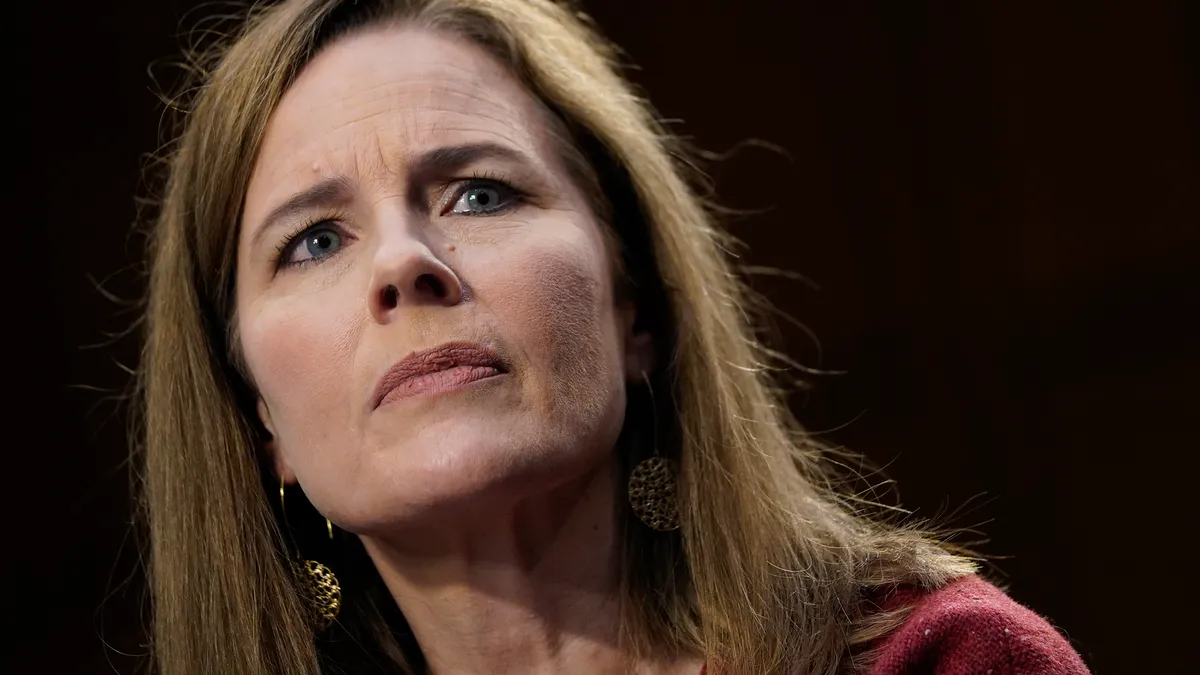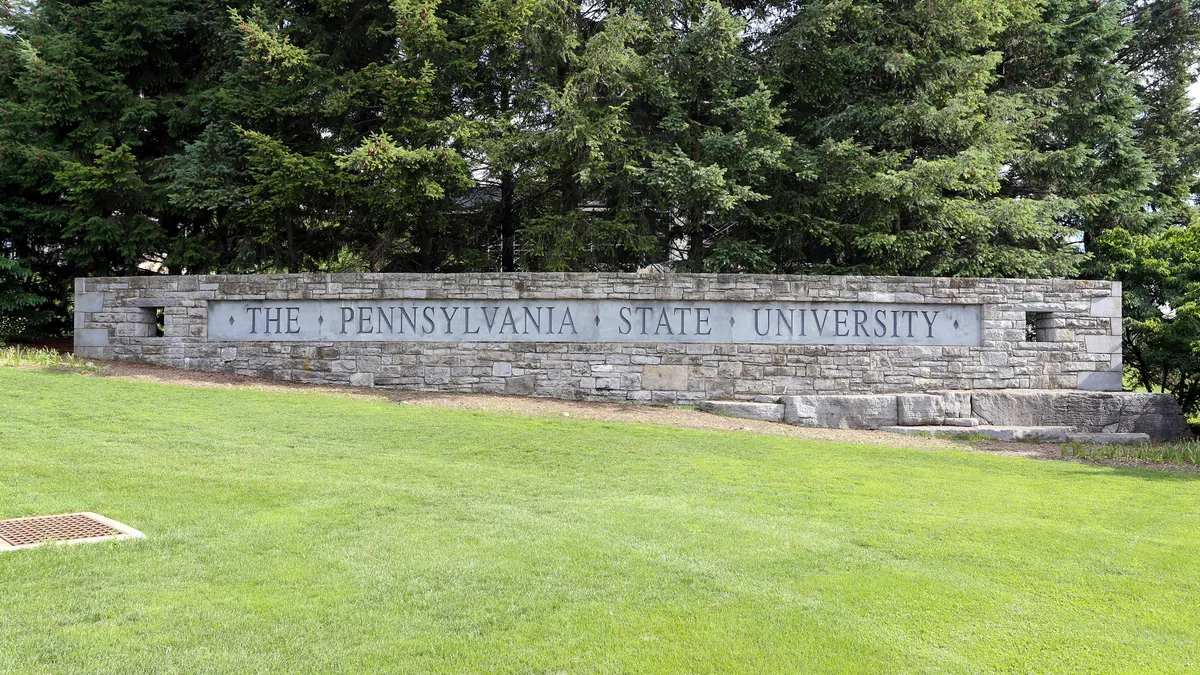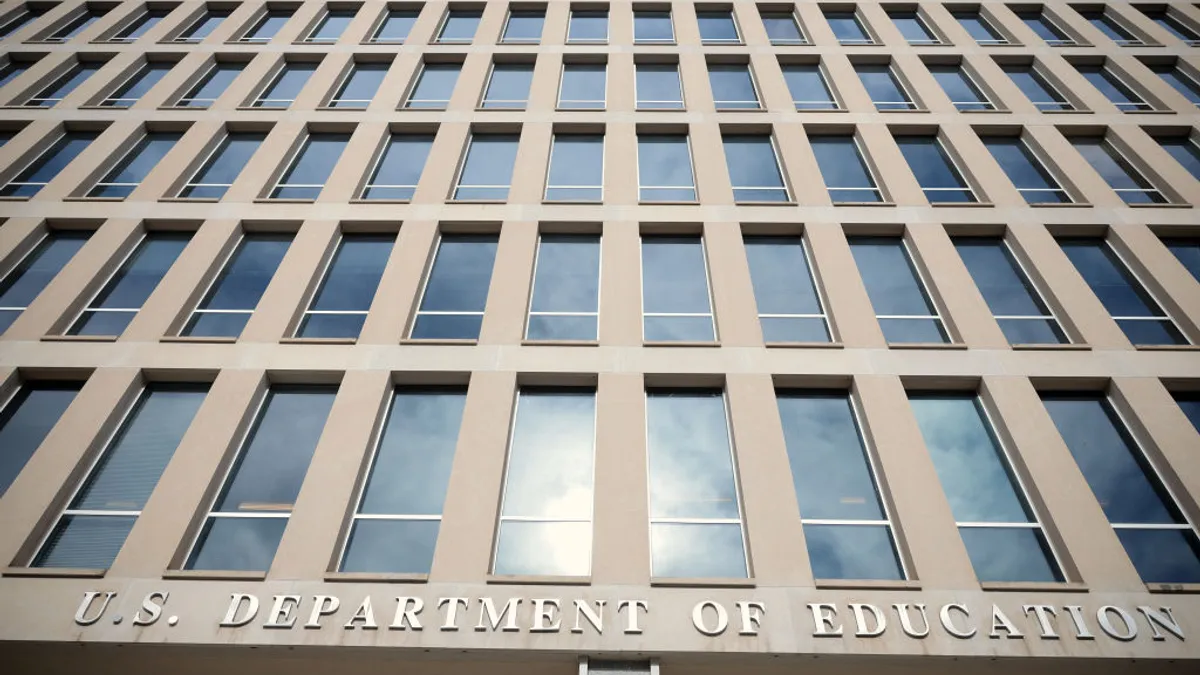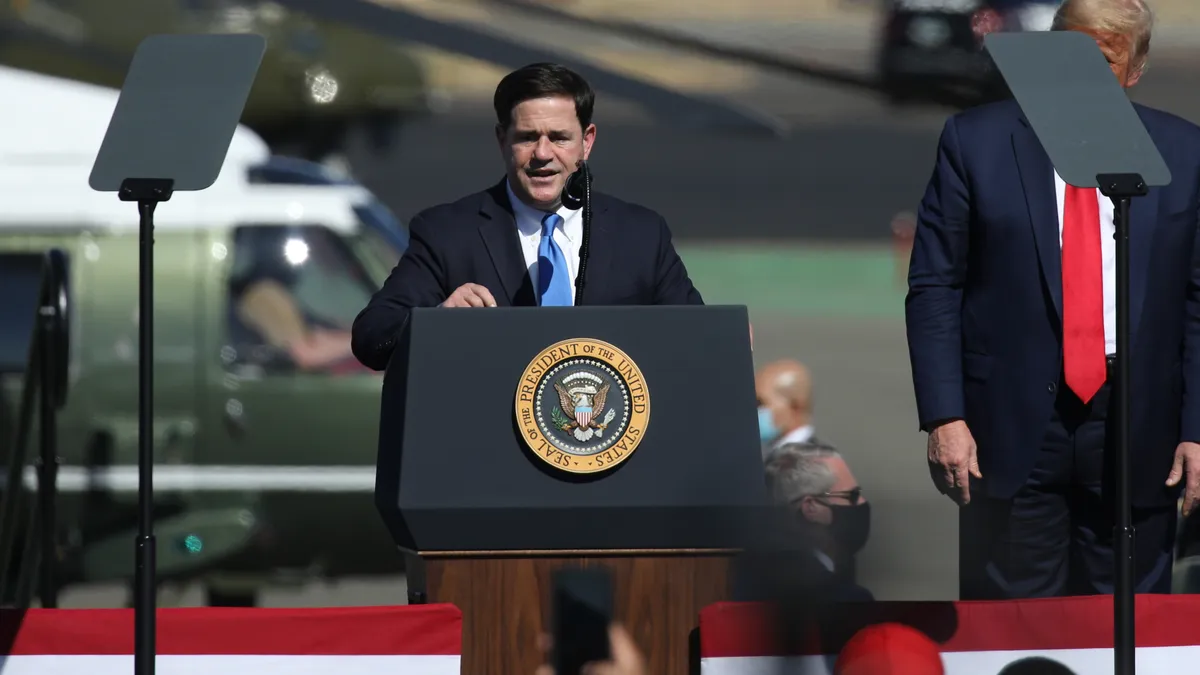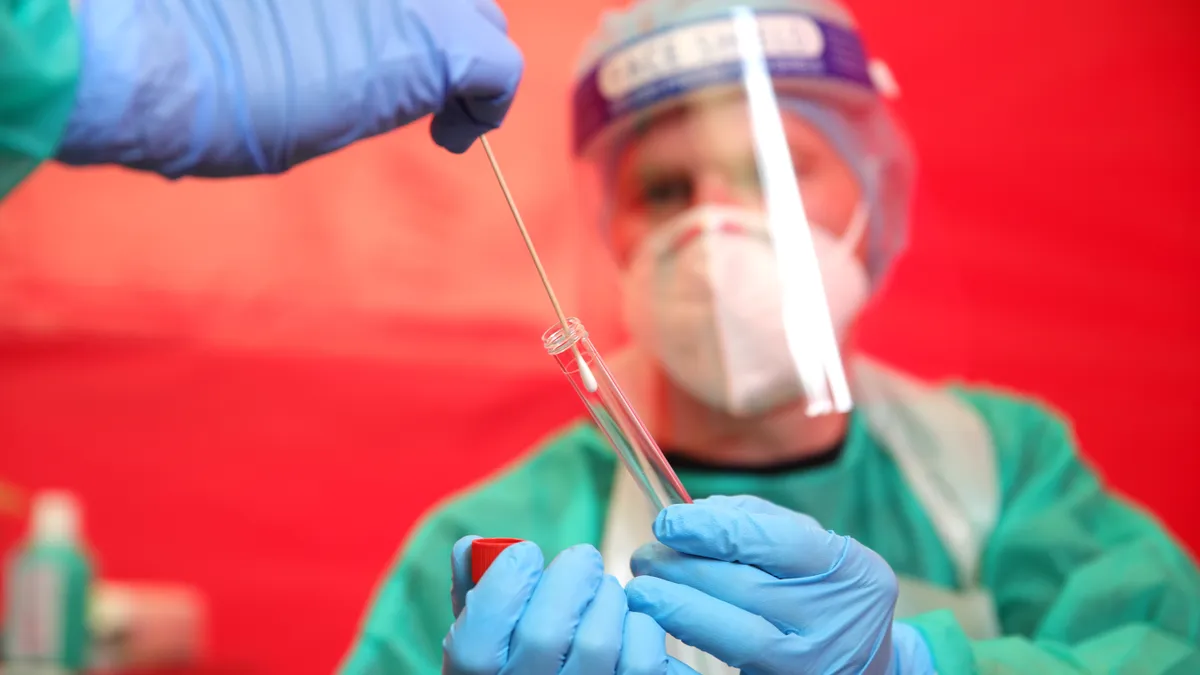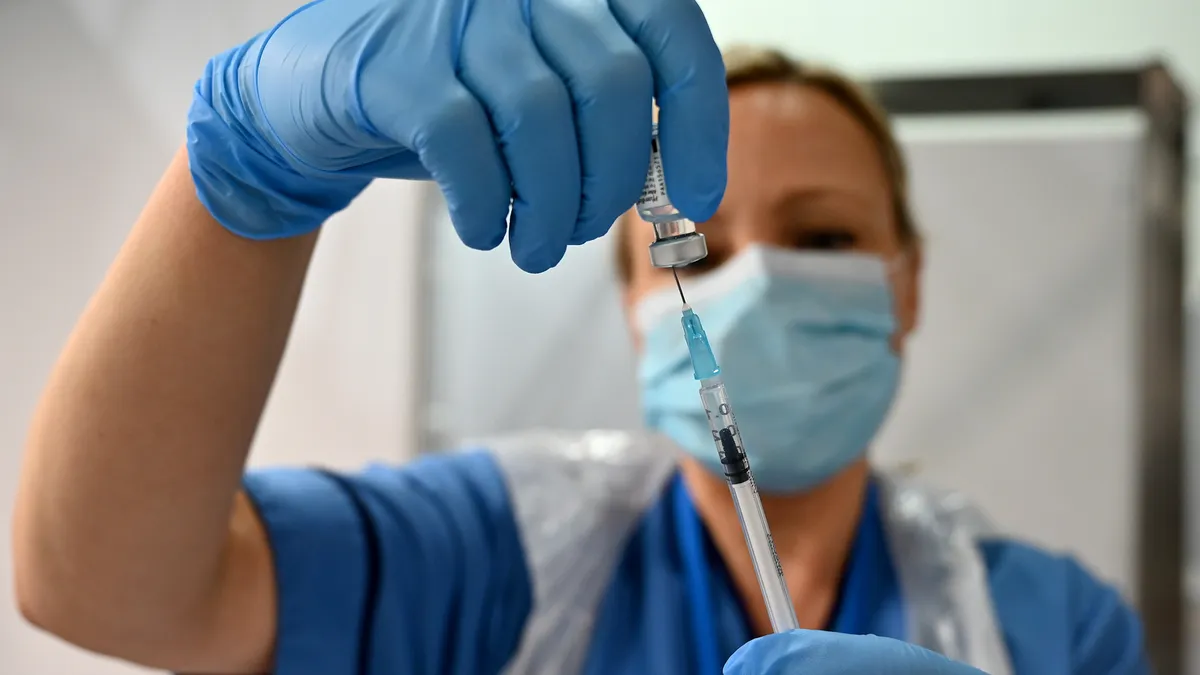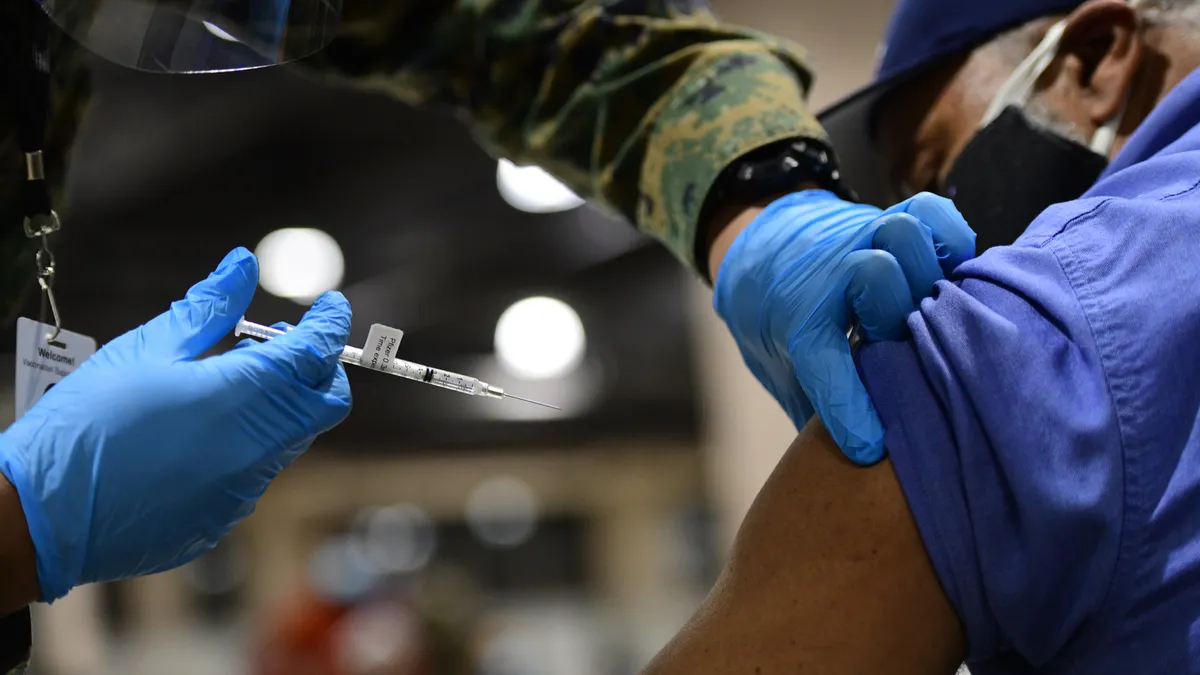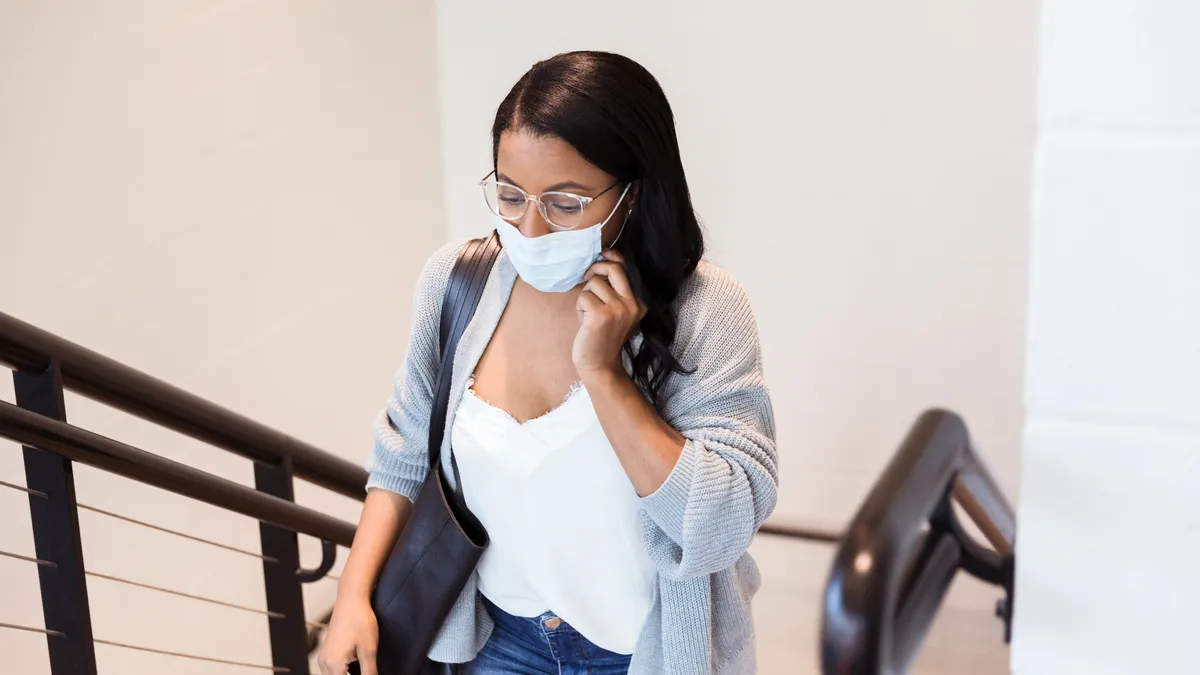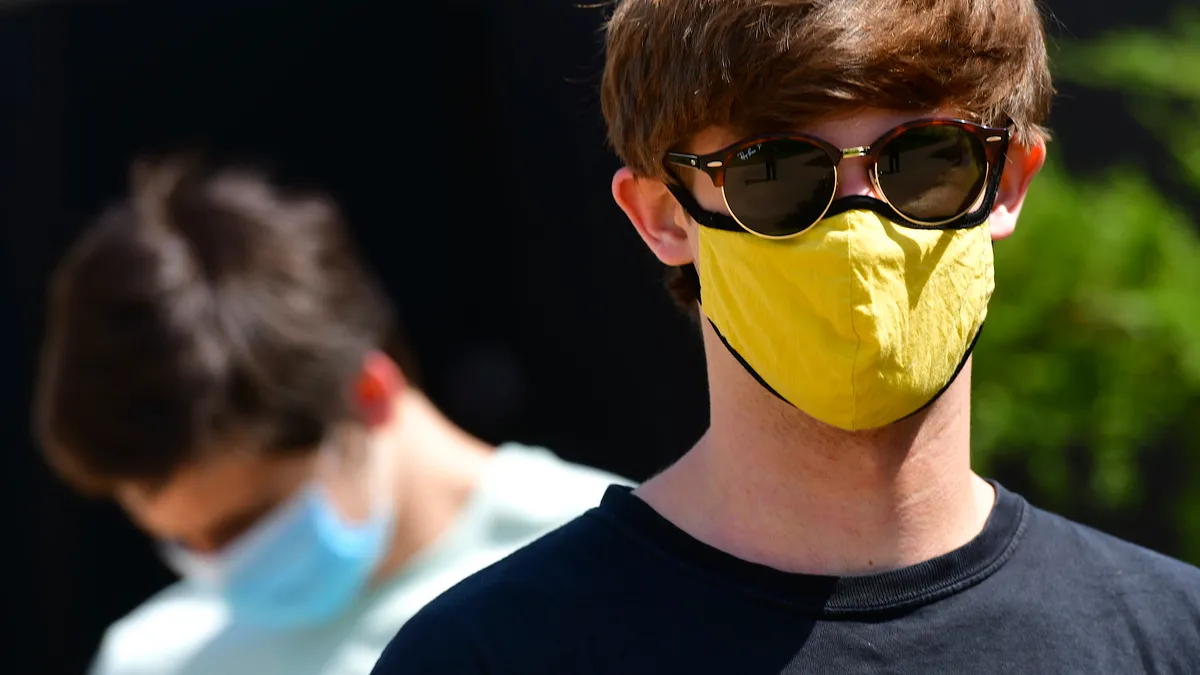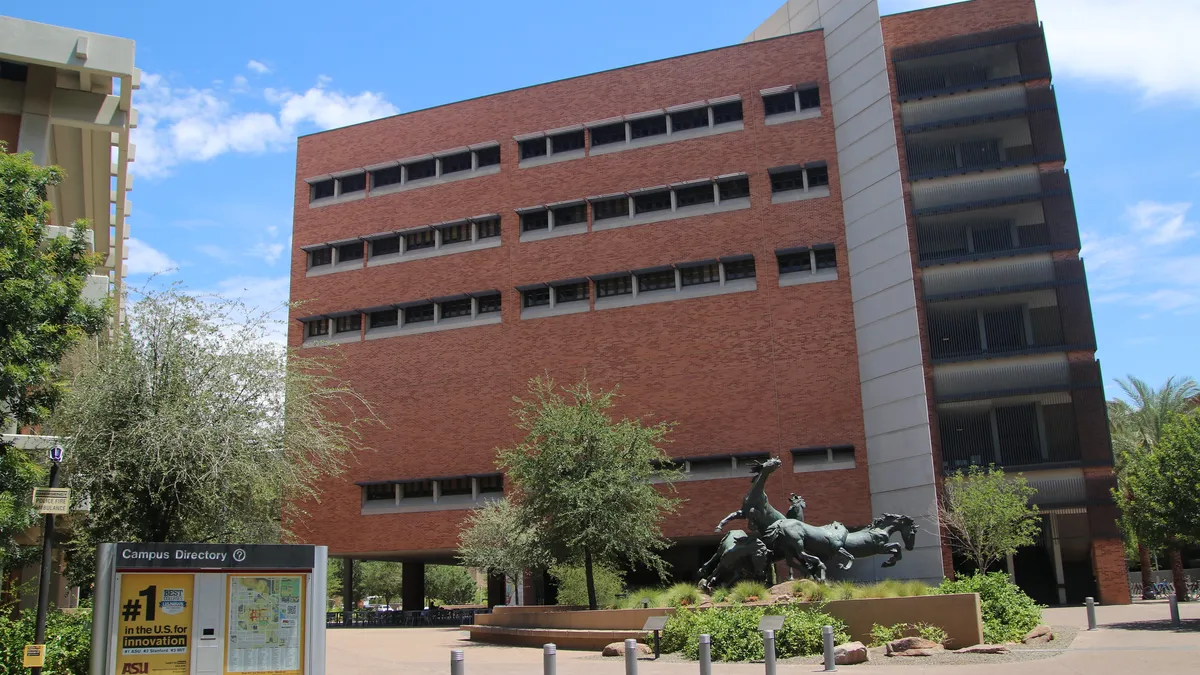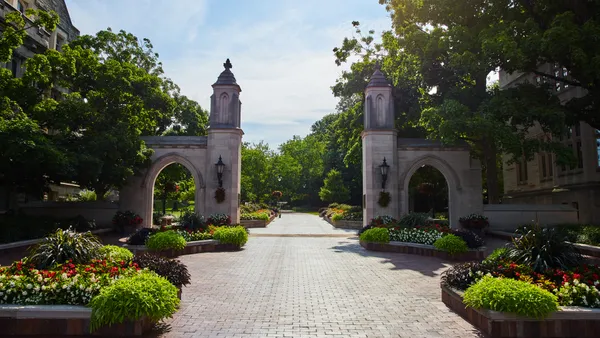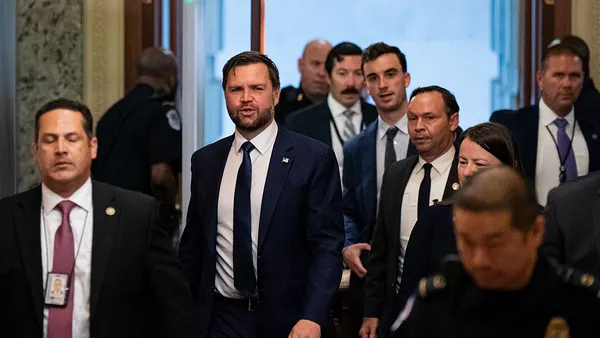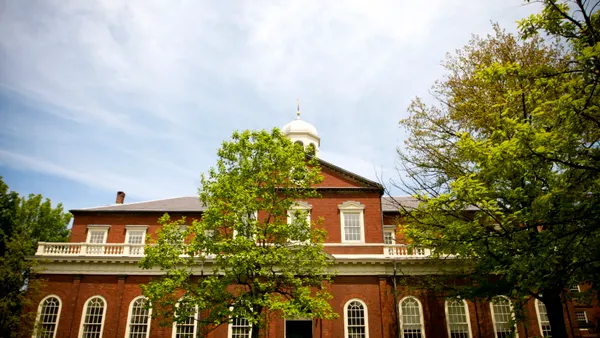UPDATE: Aug. 13, 2021: The U.S. Supreme Court on Thursday preserved Indiana University's mandate that students be vaccinated against the coronavirus.
Justice Amy Coney Barrett, who oversees the appeals court involved in the case, declined to refer the legal challenge from eight Indiana U students to the full Supreme Court. She turned down the students' plea for emergency relief without comment.
UPDATE: Aug. 2, 2021: A federal appeals court on Monday refused to issue an injunction blocking Indiana University's student vaccine mandate. "A university will have trouble operating when each student fears that everyone else may be spreading disease. Few people want to return to remote education — and we do not think that the Constitution forces the distance-learning approach on a university that believes vaccination (or masks and frequent testing of the unvaccinated) will make in-person operations safe enough," the three-member panel wrote in its decision.
Dive Brief:
-
A federal judge on Sunday declined to block Indiana University's requirement that students be vaccinated against the coronavirus in order to return to campus.
-
Eight Indiana U students sued the institution last month, arguing the mandate infringes on their constitutional rights.
-
Hundreds of colleges are obligating students and employees to get the shot to participate in campus activities, but this appears to be the first legal ruling affirming such a requirement.
Dive Insight:
While many institutions are directing their campus populations to get vaccinated, a national debate rages over whether they, as well as other entities such as businesses and employers, are legally permitted to do so.
Many legal scholars believe schools are on solid ground to mandate the vaccine. However, some uncertainty remains as vaccines being administered in the U.S. have all been approved through the U.S. Food and Drug Administration's Emergency Use Authorization. This enables the agency to get the shots out more quickly during the health crisis. But it has spawned concerns that they have not been vetted thoroughly as vaccines with full authorization, even though the Centers for Disease Control and Prevention says the coronavirus vaccines have been rigorously tested.
The students suing Indiana U referenced in court filings that the vaccines lack full FDA approval. They claimed the university's vaccine requirement violates constitutional freedoms.
The lawsuit is backed by The Bopp Law firm and America’s Frontline Doctors, a conservative organization that has railed against coronavirus mitigation measures including vaccines.
The plaintiffs asked the court to block Indiana U's vaccine mandate, a request U.S. District Court Judge Damon Leichty declined.
Leichty disagreed with the lawsuit's assertions, writing in a 100-plus page decision that the students failed to show they were likely to succeed in the case and that the university was "pursuing a legitimate aim of public health for its students, faculty, and staff."
The judge drew attention to legal precedents including a 1905 U.S. Supreme Court decision that upheld the ability of public entities to enforce vaccination-related laws. Indiana state law requires students enrolled at public colleges to be vaccinated against several diseases, Leichty noted.
He also rejected the students' arguments that the pandemic had essentially subsided in the U.S., that the university was being coercive, and that the mandate violated their "bodily autonomy."
While the university has said students who refuse to get vaccinated won't be allowed to take classes or be on campus, it has also offered a few exemptions to the rule, including for medical or religious reasons.
"The university is presenting the students with a difficult choice," Leichty wrote — get the vaccine, apply for an exemption or leave the school.
"But this hard choice doesn’t amount to coercion," he wrote. "The students taking the vaccine are choosing it among other options, and before the shot reaches their arms, they are made aware of the risks and the option to refuse."
Most of the students suing the university already secured exemptions under the university's policy, Leichty noted. He also refused to throw out the school's requirement that unvaccinated students who come to campus wear masks in public places and undergo regular testing for the coronavirus.
"Wearing masks, undergoing surveillance testing, and social distancing also aren’t indicative of irreparable harm, but consistent with CDC guidelines," Leichty wrote.
The institution applauded the decision in an emailed statement to Higher Ed Dive on Monday. It appreciates "the quick and thorough ruling which allows us to focus on a full and safe return," spokesperson Chuck Carney said.
Meanwhile, the Bopp Law Firm said in a statement Monday it intends to appeal the decision.
"Continuing our fight against this unconstitutional mandate is necessary to guarantee that IU students receive the fair due process they’re owed by a public university,” James Bopp, founder of the firm, said in the statement.



